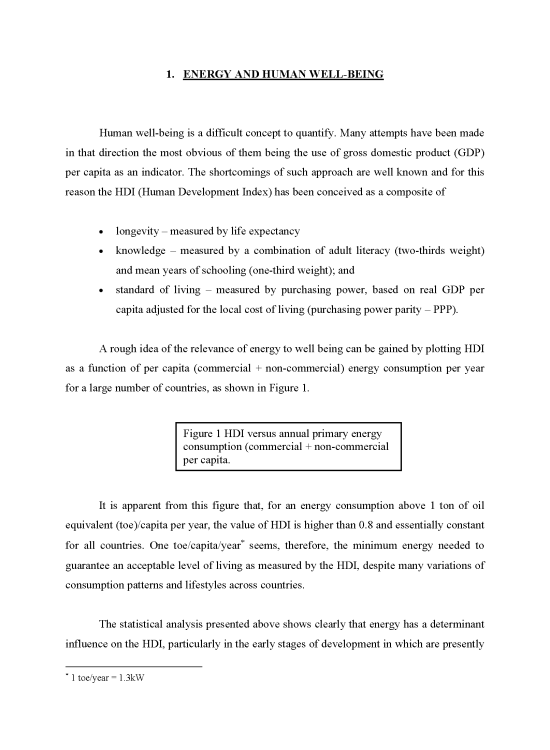Energy and Human Well-Being

Download Report by Language
Document
goldemberg-energy-1.pdf
(102.61 KB)
Citation
Goldemberg, Jose. 2001. Energy and Human Well-Being. New York.
Energy and Human Well-Being
Posted on: January 01, 2001
Human well-being is a difficult concept to quantify. Many attempts have been made in that direction the most obvious of them being the use of gross domestic product (GDP) per capita as an indicator. The shortcomings of such approach are well known and for this reason the HDI (Human Development Index) has been conceived as a composite of: longevity – measured by life expectancy; knowledge – measured by a combination of adult literacy (two-thirds weight) and mean years of schooling (one-third weight); and; standard of living – measured by purchasing power, based on real GDP per capita adjusted for the local cost of living (purchasing power parity – PPP). A rough idea of the relevance of energy to well being can be gained by plotting HDI as a function of per capita (commercial + non-commercial) energy consumption per year for a large number of countries